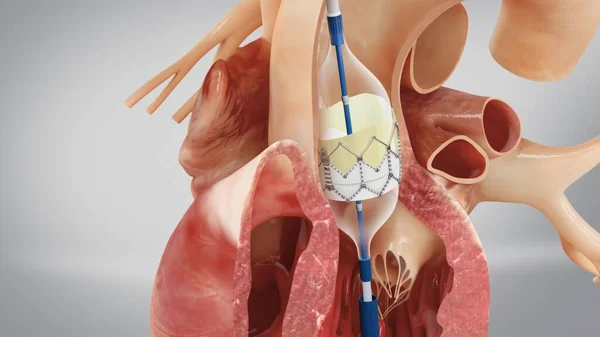Procedures
Structural Heart Interventions
Our cardiologists specialise in the diagnosis and treatment of heart valve disease and will conduct a thorough evaluation to determine if a structural heart intervention is the right treatment option for you.
Prof Sanjay Patel has extensive experience performing a range of structural heart interventions (including TAVI, balloon mitral valvuloplasty, and PFO/LAA/paravalvular leak closure) and is an accredited operator at RPAH and MUH; both hospitals use advanced imaging and state-of-the-art equipment and technology to ensure the highest level of safety and procedural success. This, in turn, leads to improved symptoms and better quality of life in our patients.
Our team will work closely with each patient to ensure the best possible outcome for their procedure. We prioritise patient comfort and safety at every stage of the procedure, from pre-operative preparation to post-operative care and follow-up.
Call for Appointment
(02) 9646 4044
Procedures Expertise
Coronary Angiography & Stenting
Electrophysiology Study and Catheter Ablation
Structural Heart Intervention Procedures
Transcatheter Aortic Valve Implantation (TAVI) | Balloon Mitral Valvuloplasty | PFO Closure | Left Atrial Appendage Closure (LAAC) | Paravalvular Leak Closure (PVL) | Renal Artery Denervation (RDN)
Transcatheter Aortic Valve Implantation (TAVI)
TAVI is a minimally invasive “keyhole” procedure offered to patients with severe aortic stenosis. Symptoms of aortic stenosis may include chest pain, shortness of breath, or dizziness. If a patient is experiencing these symptoms, we recommend scheduling a consultation with one of our experienced cardiologists,as early diagnosis is critical to alleviate symptoms and improve quality of life. Currently, most patients above the age of 75 years are suitable for TAVI.
TAVI involves introduction of a new heart valve via a catheter in the femoral artery, followed by expansion of the new valve at the site of the diseased old valve. This procedure is performed under X ray control and avoids the need for open heart surgery.

Everything you need to know about
Transcatheter Aortic Valve Implantation (TAVI)
What is TAVI?
TAVI, or Transcatheter Aortic Valve Implantation, is a minimally invasive procedure that is used to treat severe aortic stenosis, a condition where the heart’s aortic valve narrows, obstructing blood flow from the heart to the rest of the body.
What planning is involved before the TAVI
procedure is performed?
In all cases a CT scan is performed on a separate day before your TAVI procedure to ensure that your leg vessels are large enough to accommodate valve insertion. You will also need to have a coronary angiogram on a separate day to ensure you do not have major narrowings or blockages of your coronary arteries. Your case will then be discussed at a mult-disciplinary meeting involving Prof Sanjay Patel, a cardiac surgeon, cardiac imaging specialists and in some cases an aged care specialist to ensure that TAVI is the correct procedure for you.
How is the TAVI procedure performed?
TAVI is typically performed using a catheter-based approach, which means that the replacement valve is inserted through a small incision in the groin and guided into the heart under X ray control. The replacement valve is then expanded inside the narrowed aortic valve, pushing the old valve aside and allowing blood to flow freely through the heart.
Who is TAVI best for?
TAVI is usually suitable for all patients above the age of 75 years with severe aortic stenosis.
What are the benefits of TAVI?
TAVI offers several benefits over traditional surgical treatments for aortic stenosis. The procedure is minimally invasive, meaning that it can be performed without the need for open heart surgery, and recovery times are generally much faster. Additionally, TAVI can be an effective treatment option for patients who are considered too high-risk for traditional surgical valve replacement.
How long does the TAVI procedure take?
The TAVI procedure typically takes between 1-2 hours to complete.
What is the recovery time after TAVI?
Recovery time after TAVI is generally much faster than recovery time after traditional open heart surgery. Most patients are able to resume their normal activities within a few days to a few weeks after the procedure.
Call for Appointment
(02) 9646 4044
Procedures Expertise
Coronary Angiography & Stenting
Electrophysiology Study and Catheter Ablation
Book an Appointment
Call for appointment/GP referral
(02) 9646 4044
